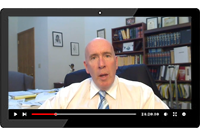Loan modification scams involve deceptive tactics where companies or people falsely claim they can help homeowners change their mortgage terms to lower monthly payments or avoid foreclosure.
Often these scammers promise to negotiate with the person’s mortgage lender to lower the interest rate, reduce the monthly payment or even get a large portion of the principal forgiven. Sounds great right? However, these third parties usually charge hefty upfront fees for this “service” and then fail to deliver on their promises.
In many instances, they may do little to no work, or simply submit paperwork that homeowners could have filed themselves. While the homeowner waits, thinking that their loan is being modified, they could fall further behind on their mortgage payments.
In the worst-case scenario, this could even lead to foreclosure.
Some common examples of home loan modification and credit fraud include:
- Upfront fees to receive services
- False promises to secure loan modifications
- Asking you to sign over the title of your property
- Asking you to sign papers you do not understand
- Suggesting you lie on your loan modification application to qualify
- Recommending extra payments to other third parties (not your servicer or lender)
- Requesting you stop making loan payments altogether
- Disappearing after taking your money without providing help
Your situation
The moment you apply for a home loan, you’re fair game for scammers. You’re likely to get phone calls, emails, regular mail and maybe even a surprise knock at your door from loan modification predators hoping you’ll fall for their schemes.
Believe it or not, some mortgage companies, loan adjustment service providers and real estate agents can commit home loan modification fraud. But you must also be on the lookout for unauthorized individuals who are not qualified to provide loan modification services.
Here are some common scenarios you might encounter:
- Misrepresentation: Falsely claiming to be legal experts and providing legal advice without any professional qualifications. Scammers sometimes claim to have a staff of attorneys working for them when in reality they do not.
- Upfront Fees: Asking you to pay for services in advance in the form of cash, check or credit card.
- Illegal Affiliations: Claiming to be affiliated with the government or mortgage lenders when they are not. Because of this, they may ask you to pay high upfront fees in order to qualify. A borrower does not have to pay to receive benefits from governmental services.
- Insider Fraud: Some individuals in the mortgage and real estate industries, who have access to confidential information, use it to commit complex loan modification fraud.
- Telemarketing and Mass Mailing Fraud: Telemarketing or mass mailing that make false promises about loan modification assistance, trying to collect upfront fees or personal information.
Often scammers try to circumvent federal and state laws that protect consumers from the charging of upfront fees. Advance fees for loan modifications are not legal in California. In addition, collecting late fees is prohibited while an application is under review, a denial is being appealed or a borrower is making payments on time.
Our solutions
The 2008 financial crisis is a stark reminder about the dangers of loan and credit fraud. Even though many of the major mortgage issuers have been forced to pay billions, homeowners need to be vigilant about loan modification fraud now more than ever.
Have you been the victim of mortgage fraud? An experienced credit fraud attorney understands the delay tactics scammers use; repeatedly losing documents, lying about lost faxes, placing you on hold for hours or simply not responding to your calls.
Don’t navigate the California legal system alone – turn the tables on your lender and reclaim your financial security.


